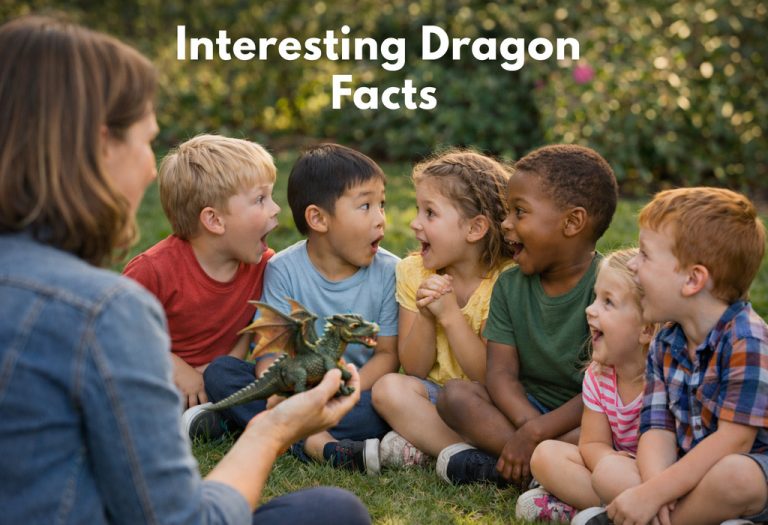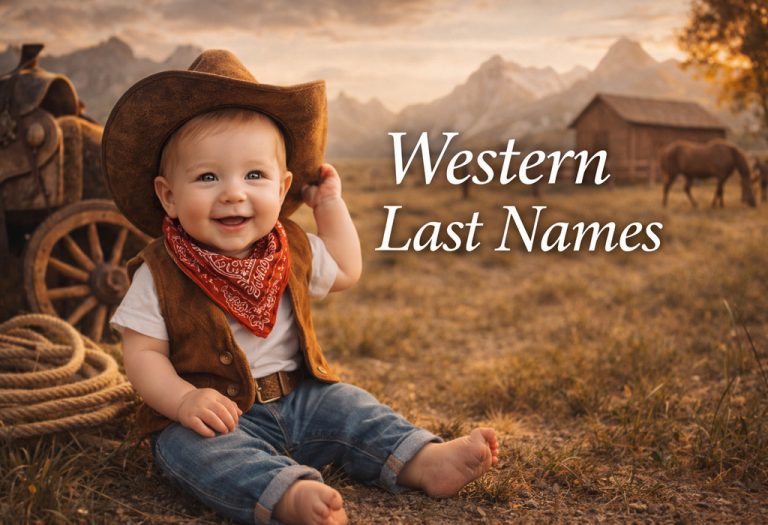When Do Babies Say Their First Word?
Think about it – right from the beginning, your baby learns to communicate. The first form of communication for any baby is crying. Every time your baby cries and you rush to tend to her, you are laying down the foundation for communication. The following way babies start to communicate is through sounds like cooing, growling and babbling. Once your baby starts to practice her consonants, it is only a matter of time before she starts trying to imitate the sounds you make while speaking. But when do babies say first word? If you are eager to learn about your baby’s speech milestones, then you are at the right place.
When Do Babies Say Their First Word?
When do babies say their first word? The average age at which kids utter their first real word is around the one-year mark (1). By the age of two, babies can generally form two-word sentences such as “doggy nice” (The dog is nice) or “got boo-boo” (I got hurt). Most children are able to form more advanced, though not perfect, sentences once they are three. For example, your child may say “I drinked all my juice” instead of “I drank all my juice” as they are not yet able to understand tenses.
Baby-Speaking Milestones
The first two years of your baby’s life are the most important for speech. Before using any words themselves, babies learn to communicate by watching how the adults around them do it. Before children utter their first word, they are already acquiring communication skills through gestures such as raising their arms for you to hold them and waving farewell. They can also express emotions through facial expressions that convey happiness, sadness, anger, and surprise (2). Your child will first begin by exploring the tongue, lips, palate and any grown teeth and making sounds with them. As your baby develops, she will be able to learn to use words to describe things in her life and what she wants.
Some of the most common first words of babies are “Dada,” “Mama,” and “Bye-Bye.” At the age of 12 months, words like “ball” and “dog” go on the baby’s first words list. Some of the important milestones to look out for when it comes to your child’s speech development are as follows:
1. Baby’s First Words at the 3rd Month
Everything is new to babies of this age, and they spend a lot of time observing your facial expressions and listening to the sound of your voice. They are also curious about any other sounds that they can hear around the house. Babies prefer the sound of a female voice over a male one and are more partial to the voices they heard while in the womb. By the end of three months, babies learn to coo.
2. Baby’s Words at the 6th Month
This is the age at which babies begin to babble, essentially imitating the sounds of speech (3). They begin with simple things like “da da”, and they are able to recognise their own names. They can also distinguish their mother tongue from other languages (4). They learn to communicate if they are happy or sad through tone of voice. They do not understand the meanings of any words yet.
3. Baby’s Words at the 9th Month
Now babies are beginning to understand the meaning of some very simple words such as “yes” and “bye” and will start to practice their consonant sounds.
4. Baby’s Words at the 12th Month
Your baby now understands the meaning behind the words that she hears all the time. This is the age at which most infants say their first word. So, be ready to hear your newborn’s first word.
5. Baby’s Words at the 18th Month
Your baby’s vocabulary expands at this age, and she will be able to point out objects to you if you name them for her. Many babies have fun learning the names of their body parts by pointing to the one they think you are asking for, and they try to imitate what you are saying.
6. Baby’s Words at 2 Years
Babies are finally starting to understand that words are not only meant to refer to objects but also to other things like possession, and they can even put together two-word sentences like “ball mine!” to communicate.
Throughout this year, she will transition from using two- or three-word phrases (“Drink juice,” “Mommy want cookie”) to constructing sentences with four, five, or even six words (“Where’s the ball, Daddy?”). He is also starting to incorporate pronouns (I, you, me, we, they) and grasps the notion of “mine” (“I want my cup,” “I see my mommy”). Observe how he is utilising language to convey thoughts and information, as well as to communicate his physical or emotional needs and desires (5).
How to Make Your Baby Talk?
Keep talking to your baby. Make sure to focus on pronouncing each individual word carefully when speaking to your child, and tell her what you are doing as you do it. Here are some ways of helping your baby learn to talk (6):
1. Be Observant
Young babies often communicate through actions, and you should pay attention to their every attempt. Your baby may hold up her arms to you to let you know she wants to be carried, or she could push her food away to let you know she is full. When these things happen, smile and make eye contact so that she will feel encouraged to communicate more.
2. Listen Carefully
When your baby coos at you, coo back at her. This will help her learn to vary pitch and tone as she will imitate the way you make the sounds. When your child is speaking to you, look at her and be responsive so that she feels more comfortable talking to you.
3. Lots of Praise
Babies often do not make any sense as they experiment with and learn different sounds. Praise your child for every attempt, whether it makes sense to you or not.
4. The Art of Imitation
If your baby happens to glance at the cat and say “cah” you should do the same, except, use the correct word, “cat.” It will help her learn the correct way to say things and also confirm for her that yes, that is a “cah,” making her more confident in her associations.
5. Small Talk
At mealtime, if your baby points to her bowl and makes a noise, don’t just give her more food. Converse with her first, “Would you like more pasta? It tastes lovely with cheese, doesn’t it?” Talking, singing to them, talk in a sing-song voice, and reading to babies help children speak and understand words sooner (7).
6. Narration
Tell your baby everything you are doing to help her connect certain words with activities. “Let’s put on this green hat!” or “Mommy is cutting carrots for Cara.”
7. Don’t Give Up
If you don’t understand what your baby is saying, clarify it with her, “Ball? Do you want the ball?”
Even if you still don’t understand what she is trying to say, don’t lose heart. Show your baby a lot of love. She will still feel rewarded for trying.
8. Follow the Leader
Let your baby set the pace during playtime and follow your child’s interests. Let her pick the topic of conversation in her own way. This will teach her that communication is a two-way street where there is talking, listening, following and leading.
9. Playacting
Children should be encouraged to play and pretend, using creative imaginary scenes, as these activities can help them develop their verbal skills as they become toddlers.
10. Read Out Loud
Young children enjoy things that are pleasant, and if you make reading sessions fun and relaxing, your child will not only develop her verbal skills, learn how to form sentences and how stories flow from listening to and imitating you, but she will also develop a love for reading as she grows.
How to Deal With Speech Delay?
At around two years is when the average child learns to speak. If your child is still not speaking, it is best to consult a doctor. If the problem is diagnosed early, the chances of your child getting back on track are higher. Here are some ways to help with delayed speech:
1. Hearing Test
Hearing loss is a major cause of delayed speech development. Three out of 1000 babies have it. Make sure to get your baby fully checked for this problem.
2. Consult a Professional
An SLP (Speech-Language Pathologist) will be able to diagnose and treat whatever is causing your child to have delayed speech development. Treatments could involve giving you tips and games to improve your speech skills.
3. Developmental Screening
Developmental or behavioural disabilities, such as autism or cognitive disabilities, can cause speech delays, and it is in your child’s best interest to have these diagnosed and properly treated if she is found to have any.
FAQs
1. What are the signs of speech delay in babies?
Although every child has their unique way of developing and covering milestones, it is important to be aware whether they are really behind the common milestones. Parents should be concerned if the child does not:
- Recognise the words no, bye-bye, and bottle by 15 months of age.
- Begin using single words by the age of 15 to 16 months.
- Follow basic instructions by the age of 21 months.
- Use actual words by their second birthday.
- Identify various body parts by the age of two years.
2. What counts as a word when the baby first says it?
It’s crucial to keep in mind that a word holds significance when it is spoken with intention, in context, and consistently. This demonstrates that your child is using a word deliberately rather than accidentally. When your child begins to talk, they may frequently produce incomplete words. For instance, they might say “mo” to mean more, or “pup” to signify up. This is completely normal and acceptable!
Like every other milestone in your child’s life, she will hit all her speech milestones when she is ready. Parents really need not worry about their children developing their verbal skills at exactly the ages given above, as those are the average ages at which things should fall into place.
References/Resources:
1. ASHA – Speech and Language Milestones
2. Nemours KidsHealth – Communication and Your 8- to 12-Month-Old
3. American Academy of Pediatrics – Language Development: 4 to 7 Months
4. NIH – Speech and Language Developmental Milestones
5. American Academy of Pediatrics – Language Development: 2 Year Olds
6. NHS – Help your baby learn to talk
7. CDC – Milestone Moments Booklet 2021
Also Read:
Baby Creeping
Stages of Baby Cruising
What Is Baby Babble?
Was This Article Helpful?
Parenting is a huge responsibility, for you as a caregiver, but also for us as a parenting content platform. We understand that and take our responsibility of creating credible content seriously. FirstCry Parenting articles are written and published only after extensive research using factually sound references to deliver quality content that is accurate, validated by experts, and completely reliable. To understand how we go about creating content that is credible, read our editorial policy here.





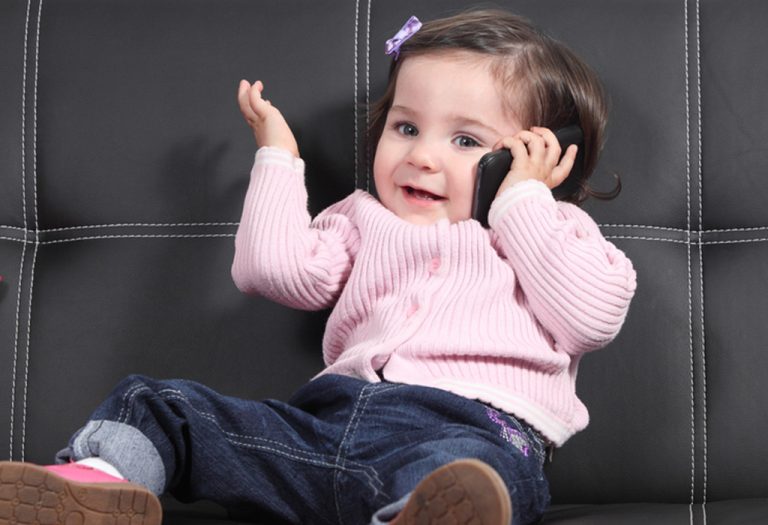
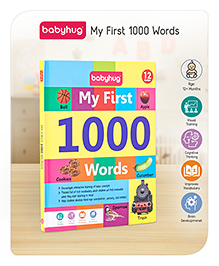
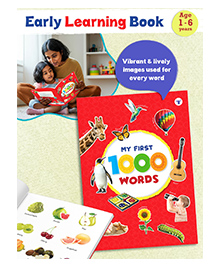
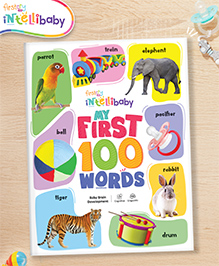
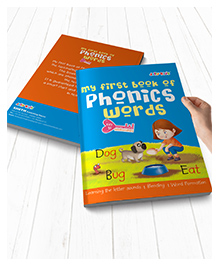
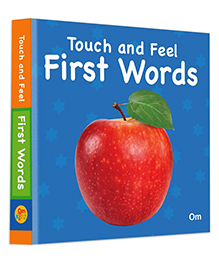



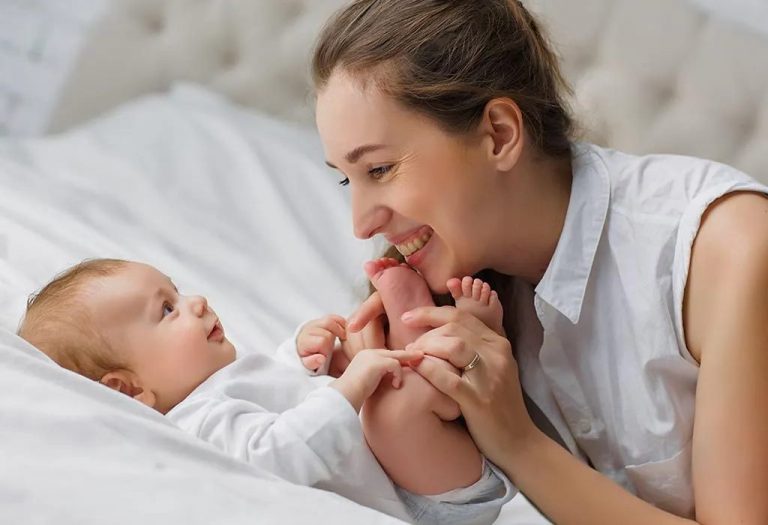
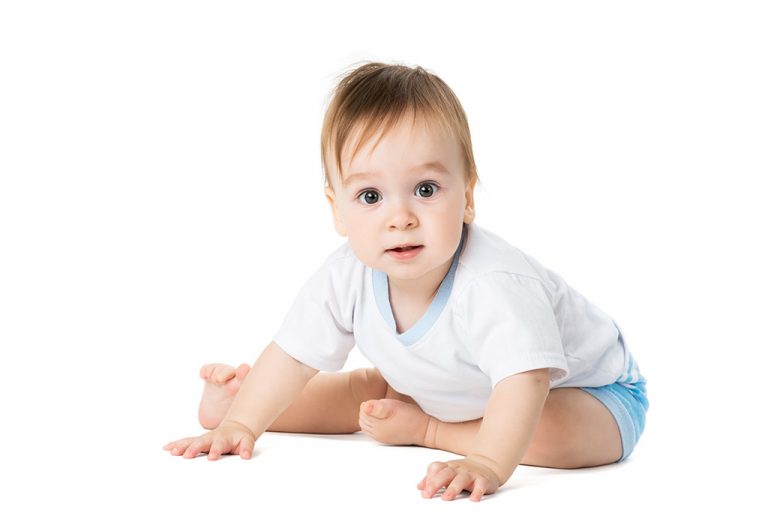



.svg)









